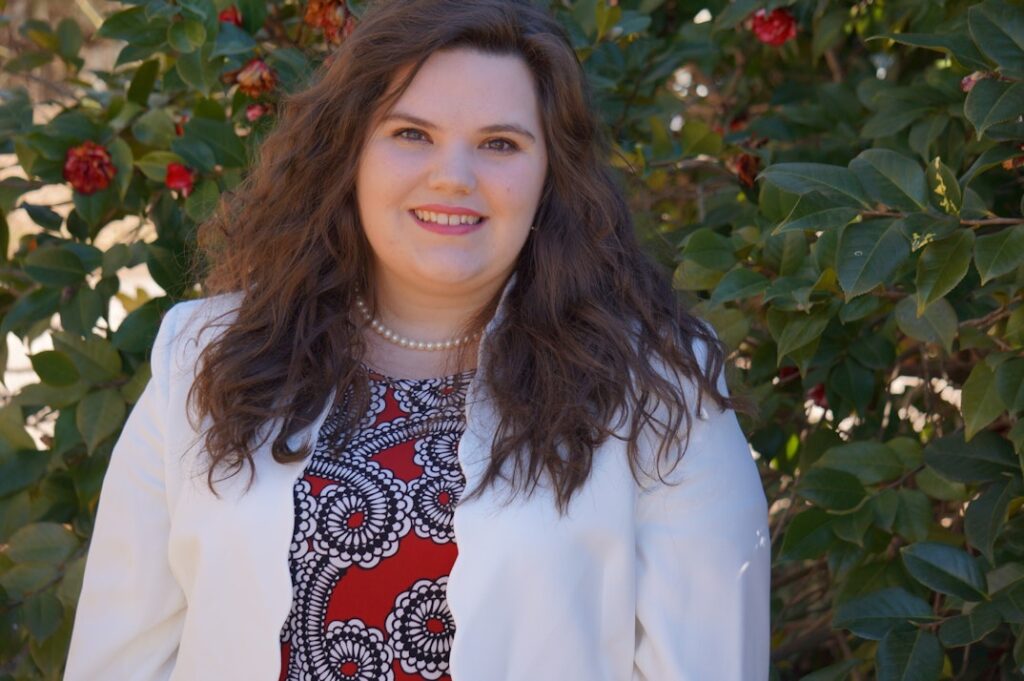“Excited” is a word that frequently comes up when Allie Cheek, a first-year student in the Online Master of Public Health (MPH) program at Tulane University, talks about the opportunity to study at an established online leader in public health. Cheek is speaking from her home in North Carolina’s Rockwell (population 2,119), a place she refers to as “the middle of nowhere.”
After graduating in spring 2020 from the University of North Carolina at Charlotte with degrees in public health and health systems management, Cheek knew she wanted to go straight to graduate school. Still, she was surprised to find herself — only three months later — beginning her master’s studies in community health sciences online at Tulane.
“I hadn’t first imagined doing an online program,” Cheek says. “But when the in-person programs I was considering were making the hurried transition to remote learning and looked to have very similar formats, I began looking at other colleges.” Cheek says she was drawn to Tulane’s long history in public health. Established in 1912, the university launched the first school of its kind in the United States and is ranked 13th in the nation among public health schools.
The COVID-19 pandemic upended Cheek’s plans, as it did for so many recent college graduates, but her decision to pivot is turning out for the best. Being able to study at a top-ranked program from 750 miles away is just one of the many advantages of online learning, Cheek says.
What’s Great About Online Degree Programs?
Students choose to earn degrees online for many reasons. In Cheek’s case, it was the opportunity to study at a university she wouldn’t have been able to attend in person. Cheek suffers from health issues that prevented her from moving to New Orleans, but online learning removed that barrier.
Fresh out of college, she is one of the few full-time students in her program. Her classmates are from all over the United States, and some are even studying from abroad. Many have been working in public health for years and bring their real-world experience into the virtual classroom, a feature Cheek relishes as a young student.
While many working professionals choose online programs for their flexibility, that same flexibility can also benefit full-time students. “Scheduling seems to be so much easier in a virtual program than when having to meet in person,” Cheek says. “That’s been very nice — having that ease of interaction with your classmates.” Scheduling time to collaborate and work on group presentations is just easier, she says, in the virtual world.
While Tulane encourages students to attend live classes, where they can interact with their professors and classmates, taped lectures allow all students to have access to the content, no matter how busy their schedules are.
Furthermore, Cheek is hard pressed to think of any disadvantages of a fully online degree program other than the obvious: missing out on the on-the-ground experience. “We have so many opportunities online,” she says, noting that few schools are offering on-ground courses right now because of the pandemic.
Connected Though Far Apart
Beyond being connected to her professors and classmates during class time through the use of technology, Cheek is also linked to Tulane’s MPH program through her work in the dean’s office. In fact, the opportunity to conduct research and work as a graduate assistant ranked high on Cheek’s list of must-haves when selecting an MPH program.
“Tulane has resources that other online programs may not offer,” she says. Currently, Cheek is working remotely for the dean’s office as a graduate assistant helping to establish professional and peer-to-peer mentoring programs for MPH students.
A Passion for Helping Seniors
Cheek is already planning life post-master’s. Her goal is to do research and teach at a university, a career choice that will likely require a doctorate. “That settles a huge chunk of my future,” she says.
Cheek also has a special interest in geriatric health. “I’ve always been much more drawn to seniors than to people my own age,” says Cheek, who serves as a county council officer for the Cabarrus County extension office looking at senior programming for residents. Recently, she’s been working to connect seniors in the community through a virtual book club/weekly get-together. She’s also striving to make the healthcare system more accessible for older adults, such as through getting seniors more comfortable with telehealth technology.
Helping communities address and combat senior isolation and loneliness is a long-held passionate concern of hers. While the pandemic has exacerbated senior isolation, it has also shined a spotlight on the problem and focused the nation on its underinvestment in public health: two positive things to come out of a terrible situation, Cheek notes.
Pursue Your Passion for Public Health
A master’s degree can help prepare you to advocate for vulnerable populations. Explore Tulane University’s Online Master of Public Health to learn more about our degree programs in community health sciences and environmental public health.
Recommended Readings:
Choosing Your Path: 9 Public Health Concentrations
